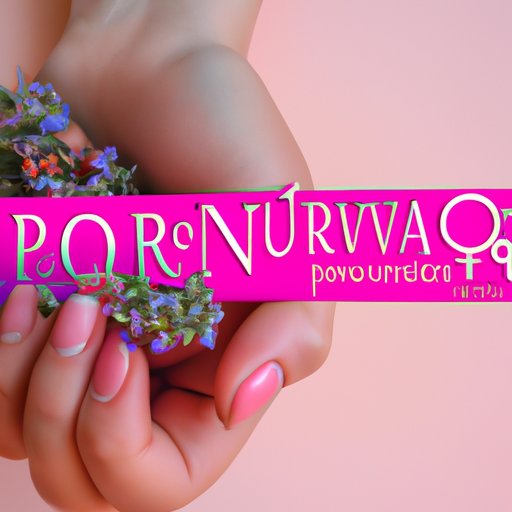I. Introduction
Ovulation, or the release of the egg from the ovary, is a crucial part of a woman’s menstrual cycle. However, for some women, ovulation can be accompanied by pain or discomfort. In this article, we will explore the various medical, hormonal, and emotional reasons for ovulation pain and provide tips for managing it.
II. Medical Reasons for Ovulation Pain
Medical issues like endometriosis, ovarian cysts, and pelvic inflammatory diseases can affect the reproductive system and cause ovulation pain. Endometriosis is a condition where the lining of the uterus grows outside of the uterus and can cause pain and discomfort during ovulation. Ovarian cysts are fluid-filled sacs that can form on the ovary and cause pain if they rupture. Pelvic inflammatory disease is an infection of the reproductive organs that can cause inflammation and pain.
If you experience severe or persistent ovulation pain, it is important to speak with your healthcare provider for diagnosis and treatment. Treatment options may include prescription medication to manage pain and inflammation, hormone therapy, or surgery to remove cysts or scar tissue.
III. Hormonal Changes and Ovulation Pain
The menstrual cycle is regulated by hormones, including estrogen and progesterone. Hormonal imbalances can cause pain and discomfort during ovulation. Estrogen dominance, which occurs when the body produces too much estrogen relative to progesterone, can lead to hormonal imbalances and ovulation pain. Progesterone, on the other hand, plays a crucial role in the menstrual cycle and can also influence ovulation pain.
If you suspect a hormonal imbalance, it is important to speak with your healthcare provider for diagnosis and treatment. Treatment options may include hormone therapy, dietary changes, and lifestyle modifications such as exercise and stress management.
IV. Ovarian Torsion and Ovulation Pain
Ovarian torsion occurs when the ovary twists around its ligaments, causing reduced blood flow to the ovary and severe pain. Ovarian torsion can occur during ovulation and is often accompanied by symptoms like nausea and vomiting. If you experience sudden, severe abdominal pain during ovulation, seek emergency medical attention immediately.
Treatment options for ovarian torsion may include surgery to untwist the ovary and prevent further complications.

V. Natural Remedies for Ovulation Pain
Natural remedies like heat therapy and over-the-counter pain medication can be effective in managing ovulation pain. Apply a heating pad or warm compress to your lower abdomen during ovulation to ease discomfort. Over-the-counter pain relievers like ibuprofen and acetaminophen may also help manage pain and inflammation.
Lifestyle modifications like regular exercise and a healthy diet can also help prevent ovulation pain. Incorporate foods high in antioxidants and anti-inflammatory properties like fruits, vegetables, and whole grains into your diet. Exercise regularly to maintain a healthy weight and promote healthy hormonal balance.
VI. Progesterone Levels and Ovulation Pain
Insufficient levels of progesterone can lead to hormonal imbalances and ovulation pain. Symptoms of low progesterone levels may include irregular menstrual cycles and difficulty conceiving. If you suspect low progesterone levels, speak with your healthcare provider for diagnosis and treatment options.
Treatment options may include hormone therapy and lifestyle modifications like dietary changes and stress management.
VII. Structural Abnormalities and Ovulation Pain
Structural abnormalities like fibroids, adhesions, or injury to the reproductive system can cause pain during ovulation. Adhesions are scar tissue that can form after surgical procedures or infections. Fibroids are non-cancerous growths that can form in the uterus and cause pain and discomfort.
If you suspect you have a structural abnormality, speak with your healthcare provider for diagnosis and treatment options. Treatment may involve surgical procedures to remove the fibroids or adhesions.
VIII. Emotional and Psychological Causes of Ovulation Pain
Stress and anxiety can also contribute to ovulation pain. Women who experience high levels of emotional stress may have more severe menstrual cramps and ovulation pain. Other emotional factors like depression and trauma can also affect ovulation pain.
Managing stress through practices like mindfulness, meditation, or yoga can be effective in reducing ovulation pain. Speak with a mental health professional if you are experiencing severe emotional distress.
IX. Conclusion
Ovulation pain affects many women and can have a significant impact on quality of life. However, there are many medical, hormonal, and emotional factors that can cause ovulation pain. It is important to speak with your healthcare provider if you experience severe or persistent ovulation pain.
By incorporating natural remedies, lifestyle modifications, and seeking appropriate medical treatment, women can minimize the impact of ovulation pain on their lives.
